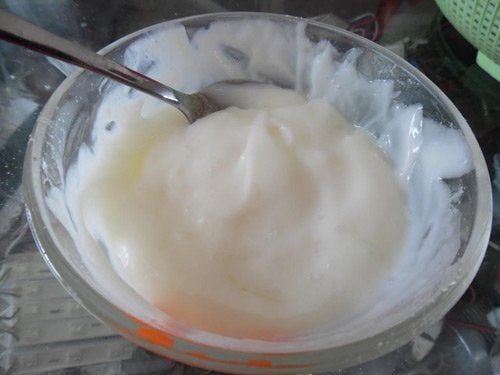This is an automatically translated article.
The article was professionally consulted with Master, Doctor Ngo Thi Oanh - Pediatrician - Department of Pediatrics - Neonatology - Vinmec Ha Long International General Hospital.The 9-month-old period is the time when besides breastfeeding, babies also need to eat a variety of 4 other food groups. Therefore, it is very important to adjust the nutrition for children at this time.
1. What are the nutritional needs of a 9-month-old baby?
The nutritional needs of children are in fact very large, the younger the child, the higher the needs, so in the first year of life children develop very quickly. The average child's weight doubles at 6 months of age and triples at 1 year of age, then the rate of increase slows down into adulthood. In the first 6 months, it is recommended to exclusively breastfeed babies and the specific nutritional needs of 9 months old children are as follows:Protein Needs: The daily protein requirement of the baby at 9 months is about 1.4g/ kg for the growth needs of bones, muscles and tissues. Parents should pay attention to children using protein with high biological value from 70-85% such as milk, meat, fish, eggs.
Demand for lipids: Lipids play an important role in ensuring energy and essential fatty acids for the absorption of fat-soluble vitamins (A, D, E, K). The lipid requirements of a 9-month-old baby also depend on the average amount of fat in breast milk and the average amount of milk the baby can suckle.
Demand for Glucid: Research results show that 8% of the glucose in breast milk is lactose, which falls into about 7g/100ml of breast milk. In a diet of 37% of a child's energy from glucose, the amount of glucose in a child's meal can be altered by complementary foods and as the child's energy needs change.

Sữa mẹ vẫn là nguồn dinh dưỡng chính của trẻ
Vitamin B1: 0.3 mg Vitamin B2: 0.4 mg Vitamin B3: 4.0 mg Vitamin C: 30.0 mg Vitamin A: A newborn baby is born with vitamin A. Liver storage depends on the nutritional status of the mother. For a 1-year-old child, the need for vitamin A is 400 mcg/day. Vitamin D: Children have rapid growth of teeth and bones, so the amount of vitamin D is about 200-400 IU/day. Mineral needs:
Calcium is essential for children under 1 year of age because the process of creating bone and tooth tissue takes place very quickly, requiring calcium at about 400-600 mg/day. Iron: when the baby is 9 months old, it is in the supplementary feeding period, it is necessary to pay attention to supplementing iron from iron-rich foods for the child to develop fully. Zinc: has an important role in growth and immunity. When children from 7-8 months need to eat 2 meals of solid powder per day, until 9 months, children should eat 3 full meals. Children should eat from a little to a lot so that children gradually get used to new foods. Supplement for children to ensure enough food groups to meet enough nutrients.

Cho trẻ ăn bột đặc để tập làm quen với thức ăn mới
2. How should a 9-month-old child eat?
At the age of 9 months, parents should still give their babies breast milk or formula 3-4 times a day with the amount from 710-950 ml. If the amount of milk provided to the child is less than 473 ml per day, the child needs to be supplemented with vitamin D. The child's weaning diet will be prepared with minced meat, vegetables, and meat.9-month-old babies are also when breast milk is no longer rich in iron, so they need to be supplemented with meat. This is a good source of nutrients and iron supplements for children. Similar to other foods, parents also need to test each type of meat before adding it to the child's diet. Children should only eat 1 type of meat / time, the amount of meat is about 3 tablespoons / 3 times / day, the meat is minced. Increase the amount of fruit or vegetables in your child's diet to 3 tablespoons 3 times a day. Eggs can be supplemented for 3-4 days per week and the yolk should be eaten until the child is 1 year old.
Besides, parents also need to supplement their children with essential micro-minerals such as zinc, lysine, chromium, selenium, vitamin B1, ... to fully meet the nutritional needs of children. The addition of these essential vitamins also supports digestion, enhances nutrient absorption, improves anorexia, and helps children eat well. Parents can simultaneously apply dietary supplements and functional foods derived from nature for easy absorption. Please accompany your child in the development process and regularly visit the website vimec.com to update useful baby care information.
Please dial HOTLINE for more information or register for an appointment HERE. Download MyVinmec app to make appointments faster and to manage your bookings easily.













